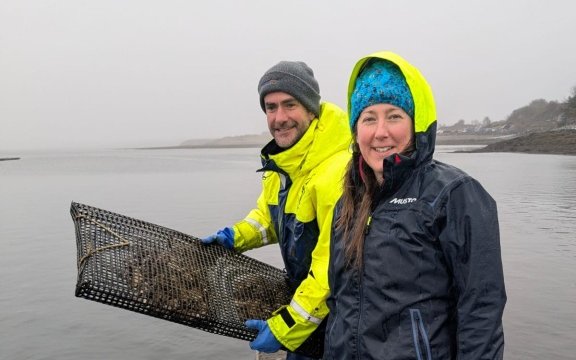Marine shellfish like oysters carry out a vital role in marine ecosystems, however, the UK's native oyster species has suffered a drastic decline in recent years.
Scientists from the University of Aberdeen and NativeAqua, a native oyster farm, have been awarded £14,300 to investigate how to improve the resilience of the native oyster, in a bid to boost the numbers of the species.
Researchers will use novel data-driven genetic approaches to inform a new breeding program. By analyzing the genetic fingerprint of each species in a breeding program, they can then optimize which oysters to breed together for the strongest offspring. This approach is common in all agriculturally farmed species, but has so far not been used to help the native oyster.
Victoria Sleight, from the University of Aberdeen and leader of the project, stated: “Marine shellfish, like oysters and mussels, are small underwater miracles. These animals play a vital role in marine ecosystems as they filter the seawater and extract nutrients for food in a process called filter feeding. Not just absorbing nutrients from the water and helping to tackle harmful nutrient run-off from human land use, they also form complex three-dimensional reef habitats that other species live in, thus boosting biodiversity. These underwater miracles also taste delicious. They are an extremely sustainable, low-carbon, healthy and affordable source of protein for human diets.”
Additionally, Sleight mentioned: “In our project, we aim to use a data-driven approach to improve the resilience of the native oyster. This species has suffered a drastic decline due to overfishing of wild stocks and climate change. Because every healthy native oyster on a farm will release 1-2 million baby larvae into the ocean, farming and breeding this species to improve their resilience to climate change will restore natural populations and enhance commercial shellfish aquaculture industries.”
Tom Ashton, Co-Founder of Native Aqua, commercial partner on the project, said: “Native oysters are a notoriously difficult species to farm; they have poor robustness and slow growth. We aim to use scientific collaboration to develop a strong bloodline that performs well on commercial farms. The wonderful thing about native oysters is that they spawn naturally whilst being grown for the table market, so aquaculture operations improve wild stocks. Our collaboration with Aberdeen will advance the development of quality farmed oysters and will leave a permanent positive legacy on the UK’s marine ecosystem.”
This is the first time that modern genetic analysis and selection techniques have been used to study this critical native species. Funding for the one-year project has been awarded from the Scottish Universities Life Sciences Alliance and The Data Lab.












